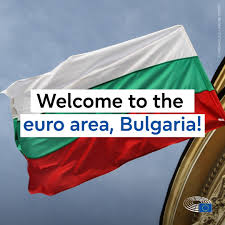Italy bets on automotive sector to strengthen relationship with China

Rome: During her first official trip to China, Italian Prime Minister Giorgia Meloni signed a three-year plan aimed at fostering a strategic partnership between the two countries across various sectors.
For the first time since 2019, an Italian prime minister has set foot in China. This visit marks a significant milestone for Giorgia Meloni, as it’s her first trip to China since taking office.
The primary goal of this visit is to relaunch the relationship between Rome and Beijing and to strengthen economic cooperation, following Italy’s decision to withdraw from the Belt and Road Initiative.
During her visit, Italy’s PM signed a three-year plan aimed at fostering a strategic partnership between the two countries across various sectors.

Boosting the growth of Italy’s automotive sector, recognised as one of the country’s most strategic industries, was among the main purposes of the agreement signed between Rome and Beijing.
Chinese President Xi Jinping, second from right, and his delegation attend a meeting with Italian Premier Giorgia Meloni, left center, at the Diaoyutai State Guesthouse.
According to Roberto Vavassori, the president of the Italian Association of the automotive industry ANFIA, Meloni’s visit to China was an extremely positive event, which received significant political endorsement from both the Chinese president and the Italian leader.
“Political support is necessary to encourage Chinese companies — regardless of their economic capacities — to invest in Italy” says Vavassori adding that it will take time before Chinese expertise can be brought to Italy.
“Now, it’s up to Italian companies to prepare the ground for this to happen,” he says.
Electric vehicles and renewable energies were among the key points of the deal.
“Under the new partnership” explains Vavassori, ”the goal is to bring vehicle manufacturing to Europe, particularly to Italy, to foster new energies and develop electric vehicles, further enhancing the existing capabilities in these areas”.
But more importantly, he stresses that Italy is the only European country to have a significant gap.
“We have a total of over 1 million vehicles between those that are purchased and those that are built in our country,” says Vavassori: “And we only have one manufacturer. The time has come to look ahead”.
“If we think of the green transition we need all the necessary competencies in order to make the whole sector more competitive. Let’s remind ourselves,” continues Vavassori, “China manufactures on average a total of around 27 million vehicles. In Italy this year the figure amounts to half a million. So it’s clear that in Italy we have to produce more”.
As Italy and other EU member states adjust their engagement with China, and with tariffs being imposed on some Chinese goods, experts emphasize how difficult and yet necessary it is for the EU to outline its China policy.
Silvia Menegazzi, assistantprofessor in Chinese Studies at Luiss University, said it’s an ongoing process, explaining that Italy is using a different approach in its relations with China.
“Italy’s focus” says Menegazzi, “is more on a bilateral partnership, whereas the Belt and Road Initiative focused on a specific project as part of China’s foreign policy with a broader and more global outreach”.
China is Italy’s second-largest extra EU trading partner, after the US. PM Meloni noted that Chinese investments in Italy account for only a third of Italian investments in China, and she vowed to address this disparity and work towards increasing Chinese investments in Italy.





